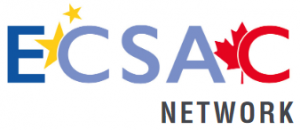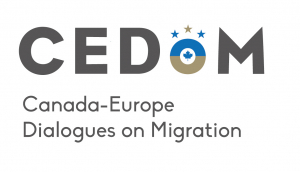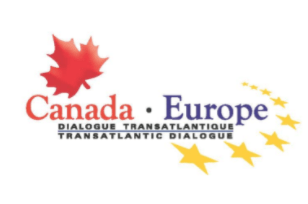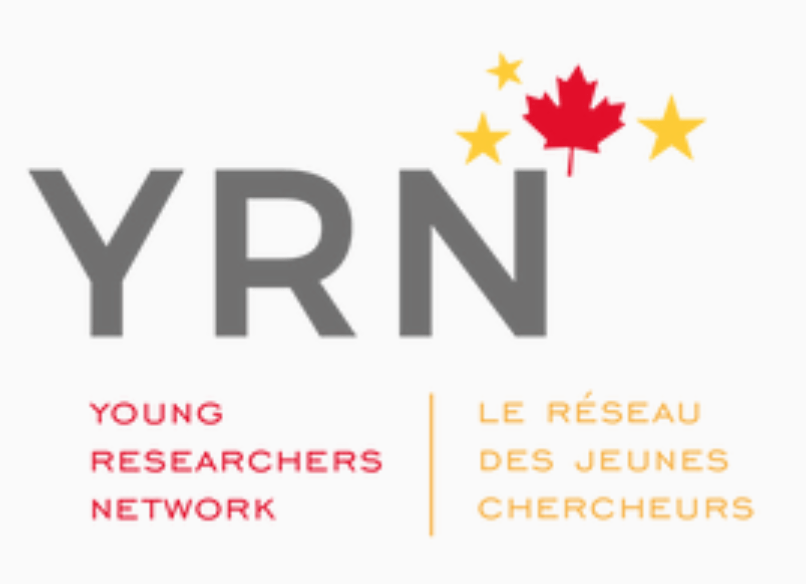2018-2020
Canada – Europe Dialogue on Democracy
CEDoD brought together a core group of multidisciplinary researchers at UVic to create a transatlantic scholarly network designed to facilitate a multilogue between civic society actors, academics and policymakers regarding populism and democracy in the European Union. The key objective was the creation of a vibrant research network focused on knowledge dissemination initiatives and engagement strategies targeting scholars, public policy stakeholders and civic society organizations. The principal idea behind the project was to engage Canada-EU experts in a transatlantic dialogue about European issues through the lens of democracy and populism.
Our CEDoD project activities and services:
- CEDoD expert database (with a thematic focus on democracy and populism)
- Two international conferences (Democracy & its Futures; Constitutionalism in the Age of Populism)
- Promotion of innovation in teaching and research (essay contest; teaching award)
- Fostering engagement of young academics (junior EU scholar interviews; blog on populism and democratic deficit)
- Dissemination of research outcomes and innovation in teaching (media alerts; video clips; Facebook)
This project is co-funded by the Erasmus+ Jean Monnet Action of the European Union and the Centre for Global Studies, University of Victoria.
The European Union support for the production of publications does not constitute an endorsement of the contents which reflect the views only of the authors, and cannot be held responsible for any use which may be made of the information contained therein.
European Community Studies Association – Canada
The main goal of ECSA-Cn was to enhance the networking capacity of the European studies community in Canada. ECSA-C will provided public visibility to the EU as a key economic and political partner of Canada and promoted research, teaching, and outreach initiatives in the field of EU and European Studies. For this purpose, this joint initiative between ECSA-C and the EUCAnet project (European Studies Network in Canada, www.eucanet.org) allows for innovative knowledge mobilization initiatives while engaging researchers, the policy community, media and the public at large.
We focused on key EU-related subjects, which had limited exposure in public debate, including changes in the political environment and the launch of the Canada-European Union Comprehensive Economic and Trade Agreement (CETA). These topics led to fruitful transatlantic exchange and dialogue.
Our ECSA-Cn project’s activities and services:
- ECSA-Cn expert database (specific service for ECSA-C members)
- Promotion of research groups (interviews; media alerts)
- Promotion of innovation in teaching and research (award; interviews)
- Fostering engagement of young academics (junior EU scholar interviews; policy memos)
- Dissemination of research outcomes and innovation in teaching (media alerts; video clips; Facebook)
This project is co-funded by the Erasmus+ Jean Monnet Action of the European Union and the European Studies Association, ECSA-C.
The European Union support for the production of publications does not constitute an endorsement of the contents which reflect the views only of the authors, and cannot be held responsible for any use which may be made of the information contained therein.
2017-2020
2017-2019
Communication and Media Strategies for EU Experts in Canada
Canadian universities have outstanding scholarly expertise when it comes to the field of EU and European Studies. Yet, there was a remarkable mismatch between the exceptional research knowledge in the academic community and the knowledge available to the broader Canadian public. In order to instigate a more successful knowledge mobilization, MSEUCA developed effective communication and media strategies for EU Studies in Canada. To mobilize this knowledge this project developed various activities to increase the media savviness of individual scholars and promoted direct connections with journalists/media producers to reflect the importance of local networks.
Our MSEUCA project activities and services:
- A series of webinars, linking expert knowledge with public debates
- Thematically organized media engagement campaign
- Events with media representatives and journalism student
- A series of innovative initiatives (video clips of 20 key EU experts in Canada, blog run by young scholars, Facebook and Twitter campaigns) increasing the visibility of EU scholars in Canada.
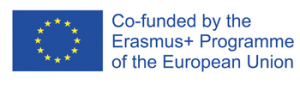
This project is co-funded by the Erasmus+ Jean Monnet Action of the European Union and the Centre for Global Studies, University of Victoria.
The European Union support for the production of publications does not constitute an endorsement of the contents which reflect the views only of the authors, and cannot be held responsible for any use which may be made of the information contained therein.
Canada – Europe Dialogue on Migration
CEDoM brought together a multi-disciplinary expert group in the field of the governance of borders and migration. It promoted exchange between Canada and the EU in scholarly and broader public debates. It did so through a series of knowledge dissemination initiatives that targeted public policy stakeholders and civil society organizations with the aim to expand the knowledge of European integration through the lens of migration and border studies in Canada.
The refugee crisis shed light on some fundamental social and political challenges that are shared between Canada and the EU. In terms of advancing transatlantic dialogue and promoting EU Studies in Canada, the focus on borders and migration proved timely and promising with a view to its broad scholarly and societal resonance. CEDoM formed a multi-disciplinary research cluster on the governance of borders and migration and to instigate exchange between Canada and the EU in scholarly and broader public debates.
Our CEDoM project activities and services:
- Building on a core group of multidisciplinary researchers at the University of Victoria (UVic) and their leadership within larger networks, this project is in the process of creating a vibrant nation-wide scholarly network designed to address issues related to borders, migration and refugees in EU studies (developing new network strategies; special issue; interview series; events).
- A series of knowledge dissemination initiatives and engagement strategies target public policy stakeholders and civil society organizations and allow promoting the knowledge of European integration through the lens of migration and border studies in Canada (media alerts; events; social media outreach; collaboration with high-schools; video clips).

This project is co-funded by the Erasmus+ Jean Monnet Action of the European Union, Centre for Global Studies, University of Victoria and Borders in Globalization (BIG) project.
The European Union support for the production of publications does not constitute an endorsement of the contents which reflect the views only of the authors, and cannot be held responsible for any use which may be made of the information contained therein.
2016-2019
2008-2016
Canada-Europe Transatlantic Dialogue (CETD)
The Strategic Knowledge Cluster “Canada Europe Transatlantic Dialogue (CETD) was supported by the Social Sciences and Humanities Research Council of Canada, as well as by six participating universities: Carleton University in Ottawa (Joan DeBardeleben and Inger Weibust), University of Victoria (Oliver Schmidtke and Amy Verdun), McGill University (Armand De Mestral) , University of Montreal (Jane Jenson and Frédéric Mérand), University of British Columbia (Kurt Hübner) and Dalhousie University (Ruben Zaiotti). The project was housed at the Centre for European Studies (EU Centre of Excellence). EUCAnet supported CETD´s outreach activities and developed its searchable database of experts on Europe.
The project promoted research on relations between Canada and Europe (including the European Union) and on policy challenges of common concern to Europe and Canada. CETD fostered Canada-wide and trans-Atlantic research networks, as well as the dissemination of research findings to the Canadian policy community and to the public at large. Its aim was to enhance the quality of public discourse and encourage research-based assessments of diverse responses to pressing policy problems. Read the capstone publication, Canada and Europe Face 21st Century Policy Challenges: Convergence or Divergence? This publication provides an overview of key conclusions from research work carried out by scholars associated with CETD since the project was initiated in 2008.
Since 2018 CETD entered a new phase and is reflecting the activities of the EU related projects at Carleton University
Young Researchers Network (YRN)
In 2004, the Young Researchers Network became an official entity within the European Community Studies Association-Canada (ECSA-C YRN). Since then, the YRN has held conferences and co-organized panels at the ECSA-C Biennial Meetings and has facilitated the integration of students’ paper presentations into the general conference panels. Currently, the ECSA-C YRN is expanding its activities in order to strengthen its capacity as a dynamic, innovative organization within the area of European studies in Canada. The network connects graduate students, post-doctoral fellows and other young researchers in the European studies field across Canada. EUCANet supported ECSA-C YRN activities by assisting the network in setting up the organizations network in the early years and organizing YRN conferences during the ECSA-C Biennial in Victoria (2004-2006), co-managing the project that allowed YRN to bring young scholars to the European University Institute in Florence in 2007, and including the YRN members in recent activities of the MSCEUCA project (see the report above).
2004-2019
German Studies Canada
The online information platform for German and European Studies in Canada was developed to connect German Studies across Canada . The platform provided information tools and outreach initiatives for the German and European Studies Community in Canada and was instrumental for the development of EUCAnet. This project was partly funded by the German Academic Exchange Service DAAD and headed by the University of Victoria in collaboration with universities across Canada.
Additional sponsorship for the initiative is provided by Jaaxy, a tool which aides in researching the latest trends on German Studies within Canada.
